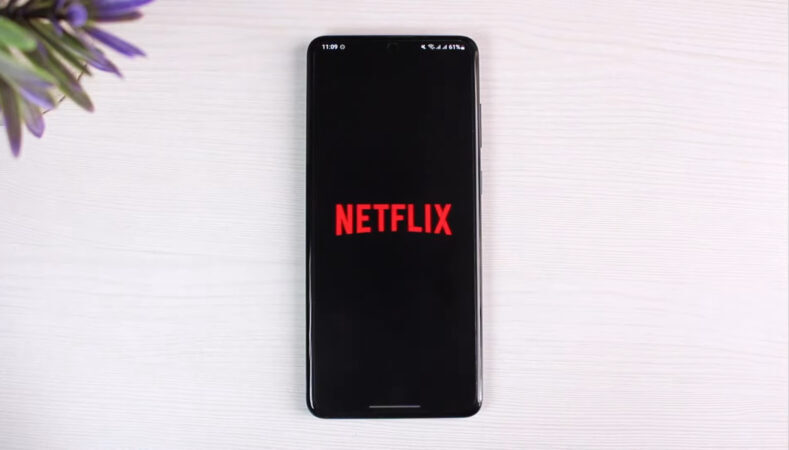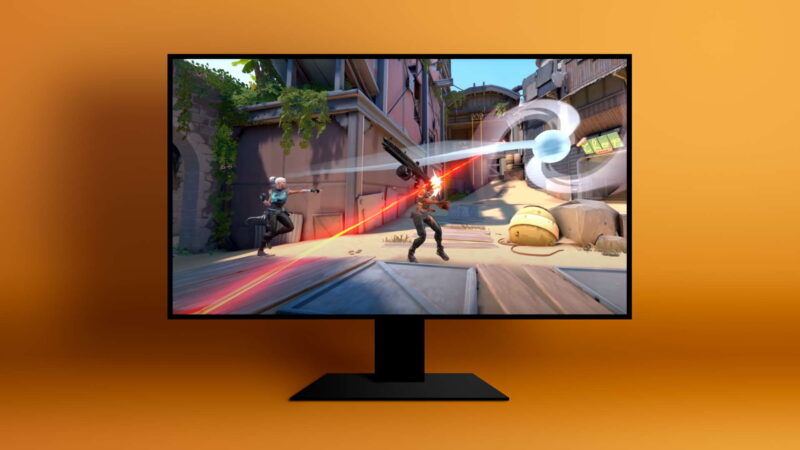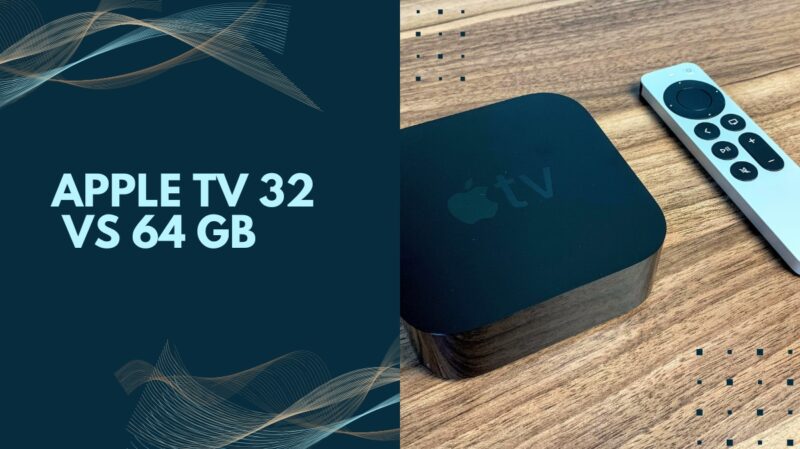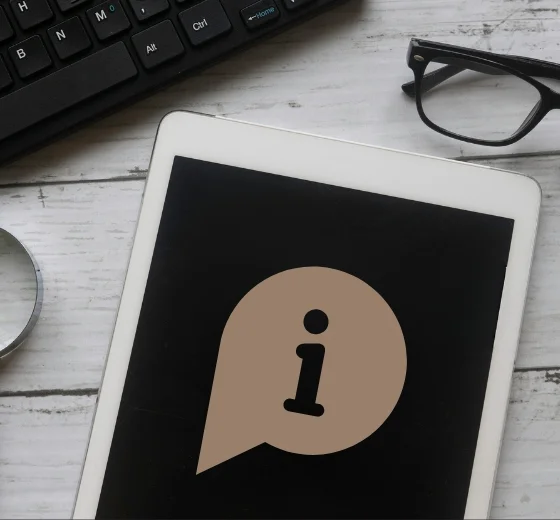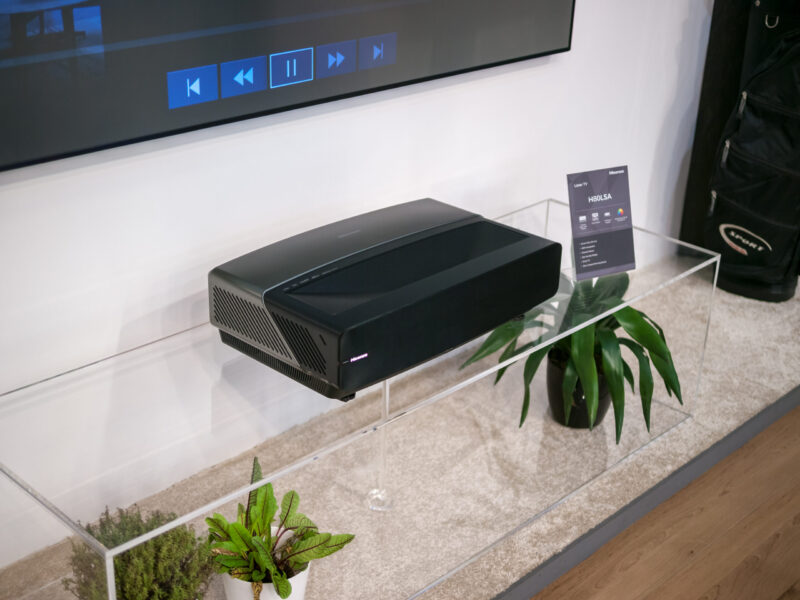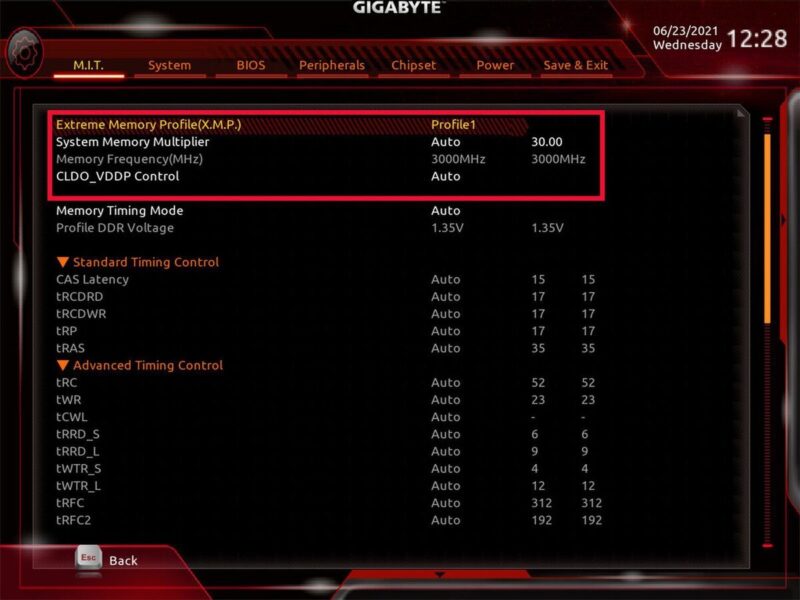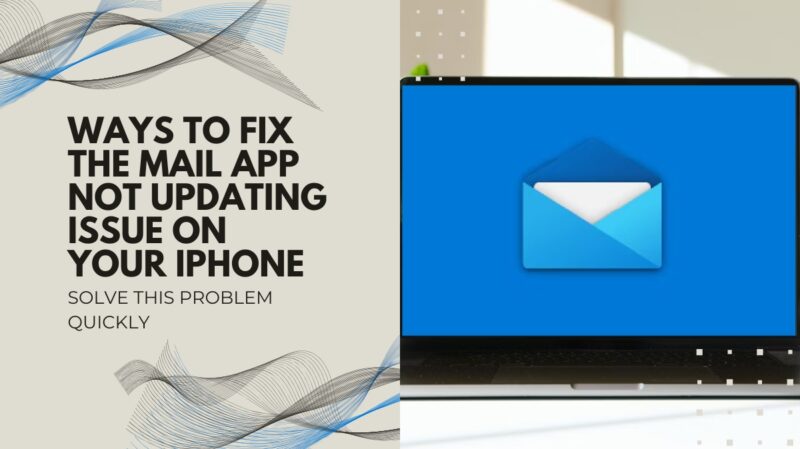So, I’ve been wondering (and I bet you have too) about the whole Netflix data usage thing. You know how it goes: you’re deep into a weekend binge of your favorite show or finally sitting down to that movie everyone’s been raving about, and then bam! You get that dreaded message from your internet provider saying you’re about to hit your data limit.
Seriously? How does streaming a few episodes (okay, maybe more than a few) chew through so much data?
It got me thinking, how much data does Netflix actually use? And more importantly, is there a way to keep my binge-watching habits from blowing up my internet bill? Turns out, there’s a lot to unpack here.
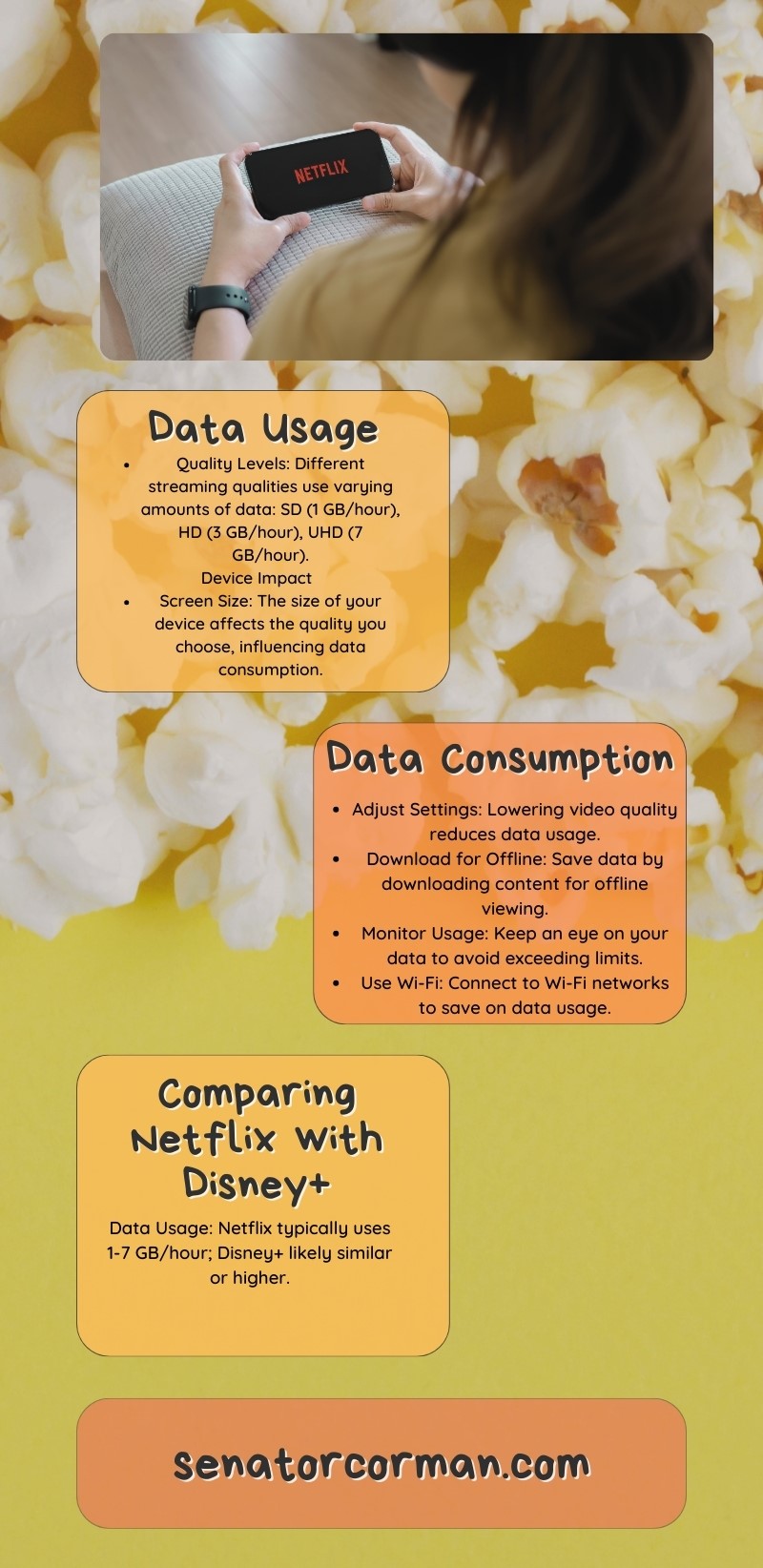
Data & Netflix
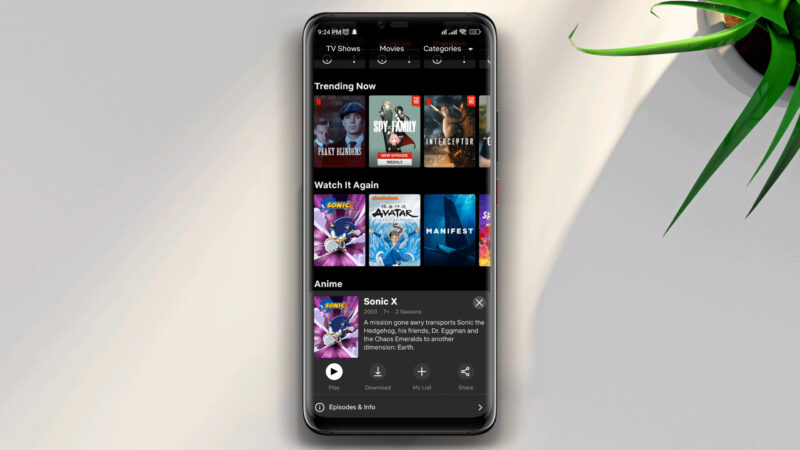
The data Netflix consumes fluctuates widely, primarily influenced by the streaming quality. Standard definition (SD) is the most economical, consuming approximately 1 GB of data per hour.
High definition (HD) escalates the usage to about 3 GB per hour. For the pinnacle of clarity, ultra-high definition (UHD) demands a substantial 7 GB per hour.
This variance underscores the significant impact video quality has on data consumption.
Device Type Impact
Mobile devices, smart TVs, and gaming consoles may process data differently, potentially affecting overall consumption.
For instance, streaming on a smartphone with a smaller screen might encourage viewers to opt for lower quality settings compared to a large, high-resolution smart TV where the difference between HD and UHD is more pronounced.
How to Check Data Usage on Your Device
For iPhone Users
Accessing Data Usage
- Open the Settings app on your iPhone.
- Tap on “Cellular” to view your cellular data options.
- Scroll down until you find Netflix listed among your apps.
Viewing Netflix Data Consumption
- Next to the Netflix app, you’ll see the data usage for the “Current Period.”
- This figure shows how much cellular data you’ve used for Netflix streaming.
Understanding Your Consumption
- This information is crucial for users who need to keep an eye on their data limits.
- It helps in making informed decisions about streaming quality or timing to avoid overages.
For Android Users
Navigating to Data Usage
- Open the Settings app on your Android device.
- Tap on “Apps” or “Applications” to see a list of installed apps.
- Find and select Netflix from the list.
Checking Data Usage
- Once you’ve selected Netflix, look for a section labeled “Usage” or “Data Usage.”
- Here, you’ll find detailed stats on how much data Netflix has used.
Leveraging the Information
- With this data at your fingertips, you can better manage your streaming habits.
- Adjusting your viewing based on data usage can help avoid exceeding your plan’s limits.
How to Reduce Data Usage
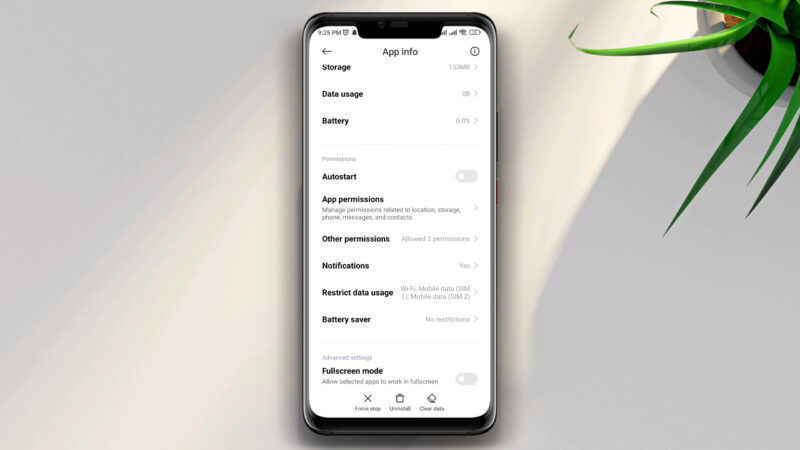
Adjust Video Quality Settings
Lowering the video quality in Netflix’s Playback Settings is a direct approach to reducing data usage. This adjustment can lead to significant savings in data, especially for frequent streamers.
However, it’s important to consider the visual compromise that comes with lower-quality settings.
Download Content for Offline Viewing
Netflix’s feature that allows for downloading select titles for offline viewing presents an effective way to conserve data. This method is particularly beneficial for those with limited data plans or when traveling.
While it’s a convenient option, it’s essential to be mindful of the storage capacity of your device.
Monitor Data Usage
Keeping a vigilant eye on data usage can prevent the unwelcome surprise of exceeding your data limit. Most smartphones are equipped with tools to monitor data usage, and setting alerts can provide timely warnings.
Being proactive in managing your data can help avoid additional charges or reduced speeds.
Use Wi-Fi Networks
Opting for Wi-Fi connections when streaming Netflix can lead to substantial data savings. Public Wi-Fi is often available, though its reliability and security can vary.
Ensuring you connect to secure Wi-Fi networks is crucial to safeguard your personal information while enjoying uninterrupted streaming.
Netflix vs. Disney+
When comparing the data usage of Netflix with Disney+, it’s essential to understand how both platforms manage streaming quality and the resulting data consumption. Netflix offers a range of quality settings from Standard Definition (SD) to Ultra-High Definition (UHD), with data usage varying from approximately 1 GB per hour for SD up to 7 GB per hour for UHD.
Disney+, on the other hand, also provides content in various resolutions, including 4K UHD for many of its titles. While Disney+ has not officially published specific data usage figures, it is estimated that streaming in HD consumes about the same amount of data as Netflix, around 3 GB per hour, and streaming in 4K UHD could use significantly more, potentially matching or exceeding Netflix’s 7 GB per hour for similar content quality.
Both platforms employ adaptive streaming technologies, which adjust the video quality in real time based on the user’s internet speed to ensure smooth playback. This means that if your internet connection is strong, both services will automatically stream in the highest available quality, leading to higher data usage.
When considering the best streaming services for horror movies, it’s worth noting how these platforms manage data usage, especially if you’re prone to marathon sessions of spine-chilling content.
FAQ
Related Posts:
- Can You Use A Monitor Without A PC? We Tested…
- 256GB VS. 512GB SSD - How Much Storage Is Better for You?
- Get Ready for a New Netflix Rom-Com With Zac Efron…
- Netflix vs Disney Plus Compared: Which Is Better?
- National Treasure 3: Updates and Release Date Speculations
- Alien: Romulus Release Date, Cast and More!


